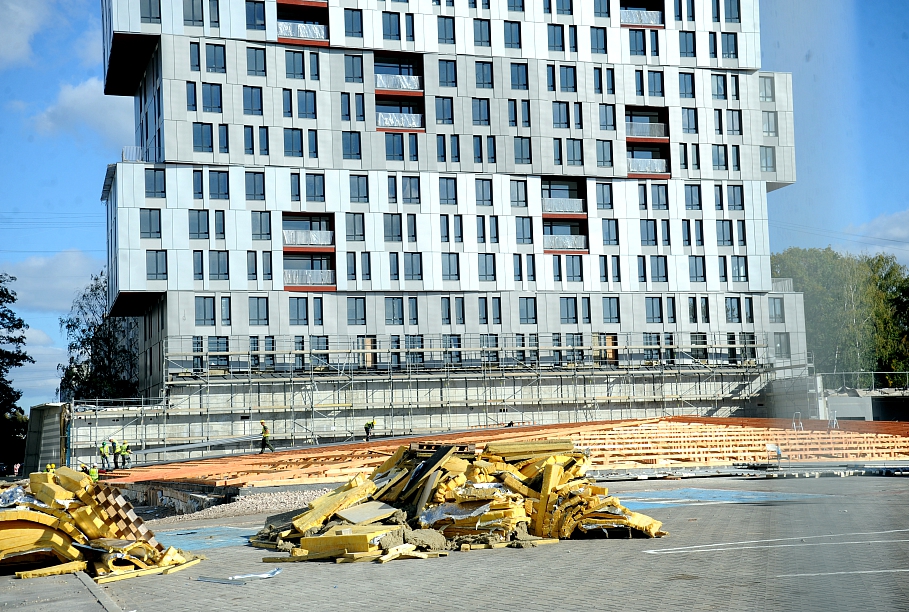He spoke a day after the 12th Saeima in its first extraordinary plenary session on Tuesday created a parliamentary investigative commission to follow-up on the Maxima supermarket building collapse.
As promised by several elected Saeima members, the Zolitude tragedy investigative commission will try to analyze the causes leading to the shopping center’s roof caving in upon shoppers and staff at the Maxima supermarket. Then it hopes to draft recommendations to prevent any such catastrophes in the future. Its mandate calls for a 12-month working term to complete the task.
However, Kalnmeiers told journalists Wednesday that police investigators have not been given any deadlines by which to complete their work, insisting that the quality of the criminal investigation is of paramount concern.
“We are trying to do our job properly and do not wish to be rushed,” he said, despite the approaching anniversary and no sign of any definitive conclusions in the works yet.
Initiative authors Arturs Kaimiņš (Regional Alliance) and Regīna Ločmele-Luņova (Harmony), who gathered the required thirty-six signatures amongst opposition deputies to create the commission, each made impassioned speeches at the plenary to seek justice for the innocent victims.
Comparing them to veteran soldiers fallen on the battlefield, Kaimiņš told the Saeima:
“We now have 54 fallen victims at Zolitude, not from bullets, but rather from the blank spots in our national legislation.
"It is our responsibility to restore their honor and learn from the fate of these innocent victims, so that it never happens again,” he said. “That’s why it is critical to understand how the law can help guide the actions of professionals who commission and construct public buildings, who protect and save victims, who investigate crimes. It’s possible they really need our help. If the bureaucracy is such a heavy and ruinous burden, then it must be simplified,” Kaimiņš said.
On her part, Ločmele-Luņova, who also represents the Zolitude victims’ group Zolitūde 2111 said that Saeima would not duplicate the efforts of police investigators, but rather seek legislative solutions and improvements to the underlying conditions that may ultimately have combined to bring about the disaster.
However, MP Kārlis Seržants (Greens-Farmers) warned that political infighting could dash any hopes for a useful conclusion to the parliamentary investigation. “God forbid, if half the commission wants to prove the government is responsible, while the other half will point to the Riga City Council, then of course there will be no result whatsoever to speak of,” the deputy said.
The commission will have 12 members, two from each party, and will be entitled to summon experts and institutional staff to testify and clarify issues related to the disaster.
The historical record of parliamentary investigative commissions formed by Saeima since post-Soviet independence leaves little room for hope, however, says Latvia’s transparency advocacy group Delna leader Gundars Jankovs.
Of twenty separate commissions created to look into problems as far-ranging as bank failures, state electric utility scandals, child molestation accusations against MPs and government officials and even the financial dealings of former central bank chief, PM and finance minister Einars Repse, none of them were deemed to have concluded their work with any lasting results.




























